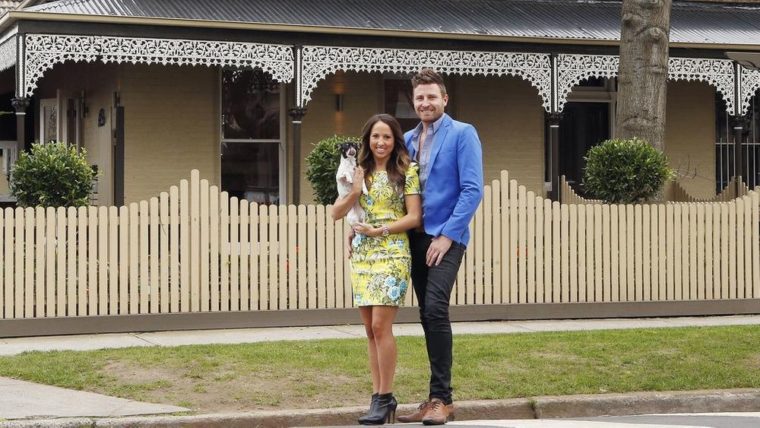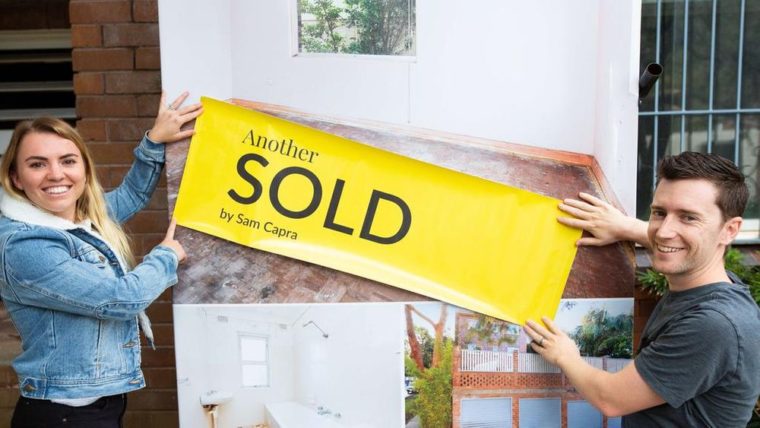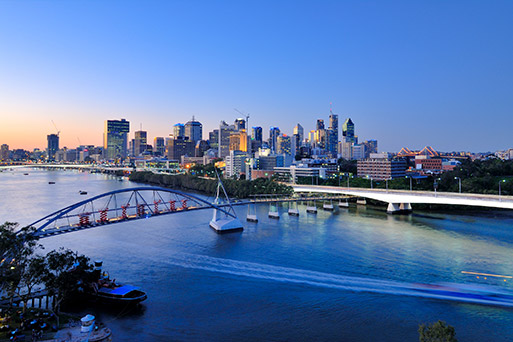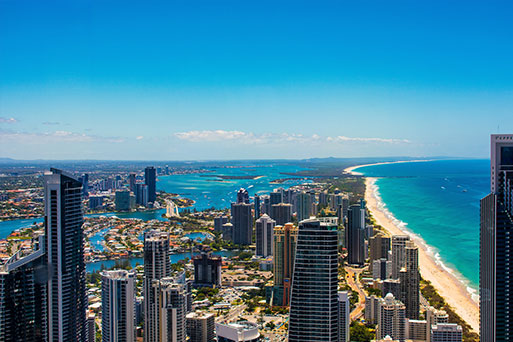
Tom and Alicia Hall recently finished their DIY home renovation. Tom, an amateur with a passion for renovations, did all the work himself on their two-bedroom cottage in Prahran. And he managed to avoid all of the big mistakes usually made by DIY renovators.
Saving up the deposit for your first home can sometimes seem like an insurmountable challenge.
But like most mountainous climbs, if you have done your research, know how to get there, understand what it takes to get there and know where the top is, you will reach the summit.
Whether you are saving as a couple, a family or on your own, you need to be clever about both your saving and your spending.
But that new home and all its comforts and rewards can be yours if you play it right. These five home deposit hacks below can help you get there.

Your first property purchase is your most important.
JOIN THE 5 PER CENT CLUB
“The very first thing you need to do is understand all of your life expenses and account for every dollar you spend. Know what your expenses are related to your income,” says buyer’s agent Leon Jacques of Cohen Handler.
“95 per cent of people spend first and save later, you want to be in that five per cent that saves first.”
As a guide, saving around 10 per cent of your wage is a good place to start. With the aim of saving a deposit equal to 20 per cent value of the home you want to purchase.
That means you won’t be stretching to make your repayments and you won’t have to pay mortgage lender’s insurance, which is expensive and protects the bank, not you, in the event of a loss.
“Proper budgeting is crucial,” Mr Jacques says.
“Account for everything. If you aren’t counting the $12 a day you pay for lunch, for example, that’s $60 a week and $3000 a year, you aren’t looking at.”

New owners Aimie and Josh Devenny pose for a picture in front of their new home. Picture: Luke Drew
CHANGE YOUR PRIORITIES
Like most things in life if you want to turn your dreams into reality, you have to make sacrifices. When it comes to buying property, that means changing your habits.
“Don’t have takeaway every other night, don’t go out, stay in and have baked beans on toast. You will set yourself up for life,” Jacques says.
“Your first property is your most important. If you get it wrong, it can take years to correct. Property is expensive to buy into and expensive to buy out of. Get the first one right, in a good growth area, hold it long term and you will get that capital growth.
“Take a packed lunch to work and put that $3000 towards your new life.”
You need to work out what is important to you. Not just now, but in five, 10, 20 years.
It’s also crucial to set a realistic time frame over which you can save your deposit. If it is a longer time, such as five years plus, investing the money to get a better return could be worthwhile.
ACCLIMATISE
If you want to own our own home, you will need to have a mortgage. And in order to get a mortgage you will need to have a deposit and to get that deposit you will need to save.
One of the keys to getting on that path and moving upwards is acclimatising. Lincoln Eastment, a mortgage broker at EAST Financial Services suggests you start preparing for mortgage-life now, which in turn should help boost your savings. This can set you up long term for the home, and the life, you want.
“Live that mortgage life before it happens,” Mr Eastment says.
“Don’t live it up between now and then. That way when you have the mortgage it won’t be difficult to put the brakes on your spending.”
“Give your bills or expenses priorities.
Mr Jacques adds: “Once you have set that savings goal, don’t take your discretionary spending out of your savings.”

COMMIT, COMMIT, COMMIT
Record low interest rates make now a good time to commit to saving that deposit and getting yourself a mortgage.
Interest rates have plummeted from 17.5 per cent in January 1990 to one per cent today. And most experts agree it will be a long time before the Reserve Bank of Australia significantly raises them.
“Don’t procrastinate, if you can find a way to save that money and you can find a way to afford that deposit, just go for it,” says Ray White Bondi Junction sales agent Luke Sommen.
“And make sure you keep that momentum going.
“It’s easy to do it for a few months then drop off or give yourself excuses not to do it. Don’t give yourself an excuse. Commit to saving and commit to that deposit and then when you have that deposit, commit to buying and don’t stop until you have your first home.”
You can commit through other means too. If you can’t afford a place you want to live it, an investment property can be a good option.
“Get the tenant to build your equity,” Mr Sommen says.

RBA cash rate changes since 1990. Source: RBA
“That way at least you are jumping onto the property ladder, you’ve got your start.”
You can also lean on your parents or other family members for help.
“If you find the right property and you are living at home, you can reduce your overheads and you’ve got skin in the game,” Mr Jacques says, while stressing owner/occupier is the best option because investing exposes you to capital gains tax.
There is also the option of a using the equity in mum and dad’s home, for example as collateral for your own mortgage.
TAKE ADVANTAGE OF INCENTIVES
There are a number of first homebuyer government rebates and grants that can help you buy your first home. Banks also offer incentives too.
Most states also offer stamp duty concessions or exemptions, for example in NSW, homes valued up to $650,000 are exempt and concessions exist between $650,000 and $800,000.
“This is where it’s important to look at where you’re putting your cash and your price point,” says Lincoln Eastment, a mortgage broker at EAST Financial Services.
“If you buy at that $800,000 mark you save yourself around $17,000 but if you buy at $900,000 you don’t get that relief.

ScoMo could give you a helping hand in saving your deposit. Picture Gary Ramage
The first home super saver scheme, through which you can save money for your first home inside your superannuation fund, can also allow you to expedite your savings process.
The Morrison Government’s First Home Loan Deposit Scheme, which begins on January 1, 2020, could also help you get into your new home.
Some banks also offer incentives to save such as first home saver accounts.
Originally published by James MacSmith in Realestate here.


